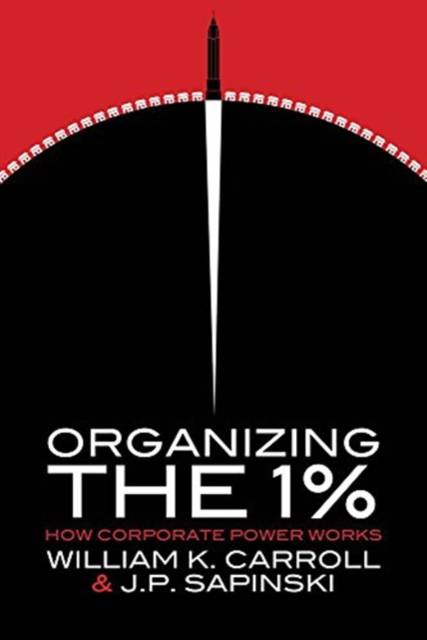
- Retrait gratuit dans votre magasin Club
- 7.000.000 titres dans notre catalogue
- Payer en toute sécurité
- Toujours un magasin près de chez vous
- Retrait gratuit dans votre magasin Club
- 7.000.0000 titres dans notre catalogue
- Payer en toute sécurité
- Toujours un magasin près de chez vous
Description
Canada is ruled by an organized minority of the 1%, a class of corporate owners, managers and bankers who amass wealth by controlling the large corporations at the core of the economy. But corporate power also reaches into civil society and politics in many ways that greatly constrain democracy.
In Organizing the 1%, William K. Carroll and J.P. Sapinski provide a unique, evidence-based perspective on corporate power in Canada and illustrate the various ways it directs and shapes economic, political and cultural life.
A highly accessible introduction to Marxist political economy, Carroll and Sapinski delve into the capitalist economic system at the root of corporate wealth and power and analyze the ways the capitalist class dominates over contemporary Canadian society. The authors illustrate how corporate power perpetuates inequality and injustice. They follow the development of corporate power through Canadian history, from its roots in settler-colonialism and the dispossession of Indigenous peoples from their land, to the concentration of capital into giant corporations in the late nineteenth century. More recently, capitalist globalization and the consolidation of a market-driven neoliberal regime have dramatically enhanced corporate power while exacerbating social and economic inequalities. The result is our current oligarchic order, where power is concentrated in a few corporations that are controlled by the super-wealthy and organized into a cohesive corporate elite.
Finally, Carroll and Sapinski offer possibilities for placing corporate power where it actually belongs: in the dustbin of history.
Spécifications
Parties prenantes
- Auteur(s) :
- Editeur:
Contenu
- Nombre de pages :
- 184
- Langue:
- Anglais
- Collection :
Caractéristiques
- EAN:
- 9781552668900
- Date de parution :
- 17-09-18
- Format:
- Livre broché
- Format numérique:
- Trade paperback (VS)
- Dimensions :
- 155 mm x 229 mm
- Poids :
- 226 g

Les avis
Nous publions uniquement les avis qui respectent les conditions requises. Consultez nos conditions pour les avis.






